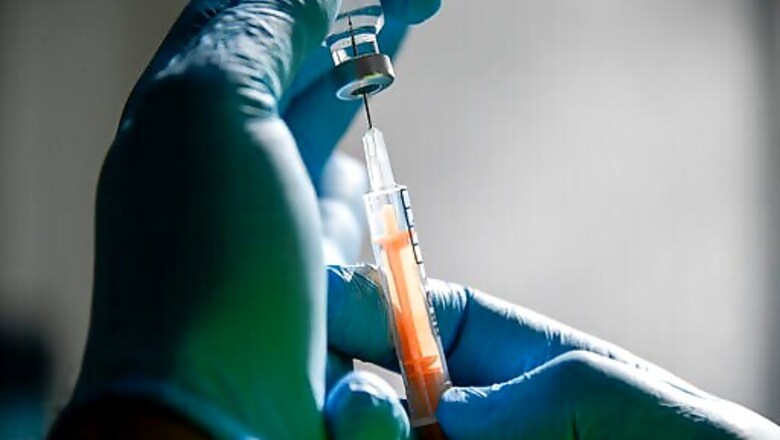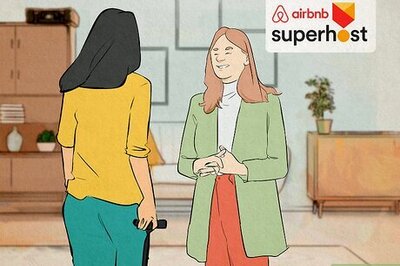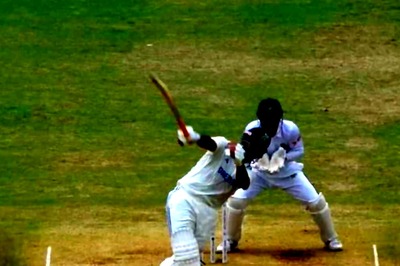
views
LONDON: Sikh leader Balwinder Singh Basra rolled up his sleeve to get a COVID-19 vaccine Sunday at the Guru Nanak Gurdwara in Luton, north of London. And he wanted everyone to know about it.
Unlike most of the 756,873 people who received injections Sunday in the U.K., Basra, the gurdwaras president, invited reporters and TV news to watch his shot to make sure the community would take notice.
I say to everyone. I took the vaccine this morning and everyone should take the vaccine and save the (National Health Service), said Basra, who wore a vibrant saffron turban for the occasion.
While politicians such as Prime Minister Boris Johnson have shown up for camera-ready coronavirus jabs, local efforts are far more important in combatting the hesitancy of some people in minority ethnic communities to get vaccinated, according to Gurch Randhawa, a professor of diversity in public health at the University of Bedfordshire.
In Luton, the Sikh community decided the best way to celebrate the upcoming holy festival of Vaisakhi was with a vaccination clinic, which embodies the faith’s principles of equality, justice and service. The festival is normally marked with prayers and large processions, but those celebrations will be curtailed by COVID-19 restrictions.
Forty people got shots on Sunday, and another 40 are scheduled for next week.
Vaisakhi is all about Sikhs carrying out selfless service, and what better selfless service than opening up a pop-up clinic that reaches out to anybody of any religion, said Randhawa, who helped organize the event. So today, we have got people from the Muslim faith, the Christian faith, Sikhs, all coming in to be vaccinated.
Britain has engineered one of the worlds most successful coronavirus vaccination programs, delivering at least one dose to more than half of the adult population so far. But inoculations have lagged in minority groups and deprived communities.
A recent survey commissioned by the Department of Health and Social Care found that 72.5% of Black people in England had either received or would accept the vaccine, compared with 87.6% for Asian residents and 92.6% for whites.
There is a lot of misinformation out there on the internet, and that information is too widely available, Dr. Manraj Barhey, a local general practitioner, said. So while (take-up among Sikhs) is not as poor as other communities, it could still be better.
The hesitancy to get vaccinated is the product of a variety of issues, ranging from concerns about vaccine safety to past discrimination in Britains health care system. Community leaders are working to combat those fears with education programs, local vaccine clinics and even a few well-placed photo opportunities.
And with efforts like the one at the Sikh house of worship on Sunday, it is a matter of show – and tell.
Disclaimer: This post has been auto-published from an agency feed without any modifications to the text and has not been reviewed by an editor
Read all the Latest News, Breaking News and Coronavirus News here


















Comments
0 comment